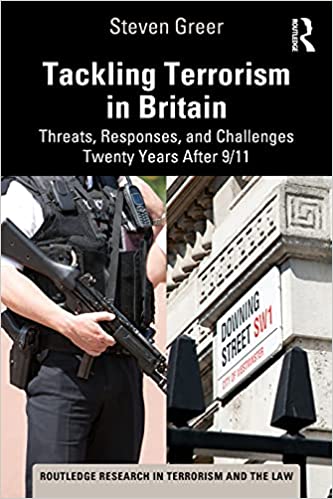by Steven Greer, Professor of Human Rights, University of Bristol Law School
Introduction
Twenty years ago the world witnessed the horrific events of 9/11. A great deal has happened on the counterterrorist front since. For one thing, the term ‘war on terror’, which never had any official traction in the UK anyway, has all but disappeared from the serious debate. Nevertheless, the threat of terrorism, and the struggle against it, persist around the globe. The UK is no stranger to either, at home or abroad. In fact, taking various forms and manifesting in several phases, the British experience has spanned at least a century and a half rather than simply the past two decades. Today, three distinct types of domestic terrorism – dissident Irish republican, far right, and particularly jihadi – predominate. A suite of counterterrorist laws and policies has been deployed to address the challenges they present. (more…)



